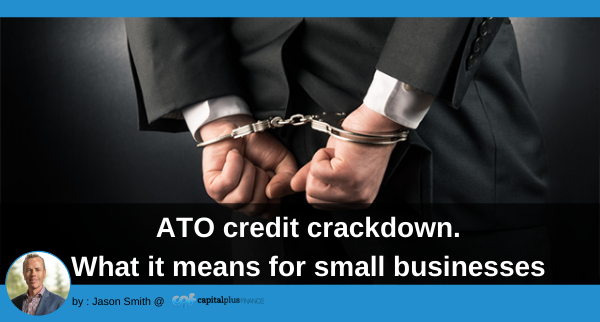The Australian Taxation Office (ATO) is cracking down on businesses that are behind on paying their tax obligations. Primarily this will impact some SME’s, due to the regularity of late payments to the ATO – as they tend to prioritise other creditors. Until now, the ATO has chosen to keep a business’s debt private, so this significant change in stance has real implications.
On October 22, 2019, a new law passed that effectively allows the ATO to report any tax debt a particular business is liable for to credit reporting bureaus. A small business‘ credit rating is now potentially under threat by failing to pay their tax debts on time. You must be aware of the changes to assess the potential impact on your business. Keep in mind that there are a few criteria that must be met for the ATO to be able to report a business’s tax debt. Let’s take a look.
What are the criteria?
Initially, the ATO was requesting the ability to report any debts above $10,000. By public consultation, this amount was found to be substantially too low, and so it was raised to the $100,000+ threshold. The business in question must also have a registered ABN. It must be more than 90 days in arrears and NOT currently paying or negotiating a payment arrangement with the ATO. Effectively, businesses who are owing substantial money and have not made any effort to pay the debt off are in the firing line.
The Purpose of this Legislation
The legislation became law for a few reasons. Firstly, small businesses owe the tax office a lot of money – a large part of more than $23 billion! By having a meaningful consequence for non-payment, the ATO argues it will encourage those in debt to actively engage with them to manage the amount owing, or at least develop an appropriate payment plan.
“Disclosing debts owed to the ATO increases financial visibility for lenders and other creditors.”
It also has the added claimed benefit of reducing the unfair advantage enjoyed by small businesses that don’t pay (or make an effort to negotiate another arrangement for) their tax when due. Many small businesses indeed do tend to pay the tax office last, as their other creditors aren’t so forgiving.
Also, this law increases financial visibility for lenders and other creditors. If you were lending an SME money, wouldn’t you want (and expect) to know if they had a large sum of money owing to the ATO? It sure does seem reasonable!
What does this mean for small business?
If you’re a small business that regularly pays your tax on time, you’ve got nothing to worry about. However, if you’ve developed the habit of letting your debts run with the ATO, you should probably think again. By doing so, you’re now risking your credit rating and credit trade insurance limits. This behaviour will likely result in a reduced ability to borrow funds in the future, or make it harder to facilitate credit terms with suppliers.
“Well over one-quarter of SME’s have trouble meeting tax obligations due to cash flow shortages.”
A recent business study & survey conducted by Scottish Pacific identified that “the ATO continues to be viewed by many SMEs as a sort of ‘lender of last resort’. Small businesses are almost twice as likely to have a debt with the ATO compared to other taxpayers.”
This finding is somewhat worrying considering the same research quantified that well over one-quarter of SME’s have trouble meeting tax obligations due to cash flow shortages. In the context of a slowing domestic and global 2020 economy, with many recent difficulties and disruptions to economic activity and trade, you must take action to sure-up your cash flow. If you fail to do so you may now be risking a potentially tough run-in with the ATO and your creditors.
How to Safeguard Your Cash Flow
Fortunately, as we reported recently, sourcing funding for small businesses is about to get a little bit easier. There are many options for SME’s looking to safeguard their cash flow – and now’s the time to do it!
If your business turns over at least $5k a month and has been operating for at least six months, an unsecured business loan could be right for you. Invoice your customers and are held back by their inability to pay you as fast as you’d like? Invoice finance is another option. Business lines of credit or merchant cash advances are also other standard solutions for businesses looking to manage their cash flow over periods of growth or disruption.
Where to go to Learn More
If you’d like to find out more, consider reading the ATO’s release on the topic. Feel like hearing a bit more from me?
Please give me a call anytime to find out more about how these changes might impact your business, or just to have an obligation-free chat about your businesses’ funding situation.





